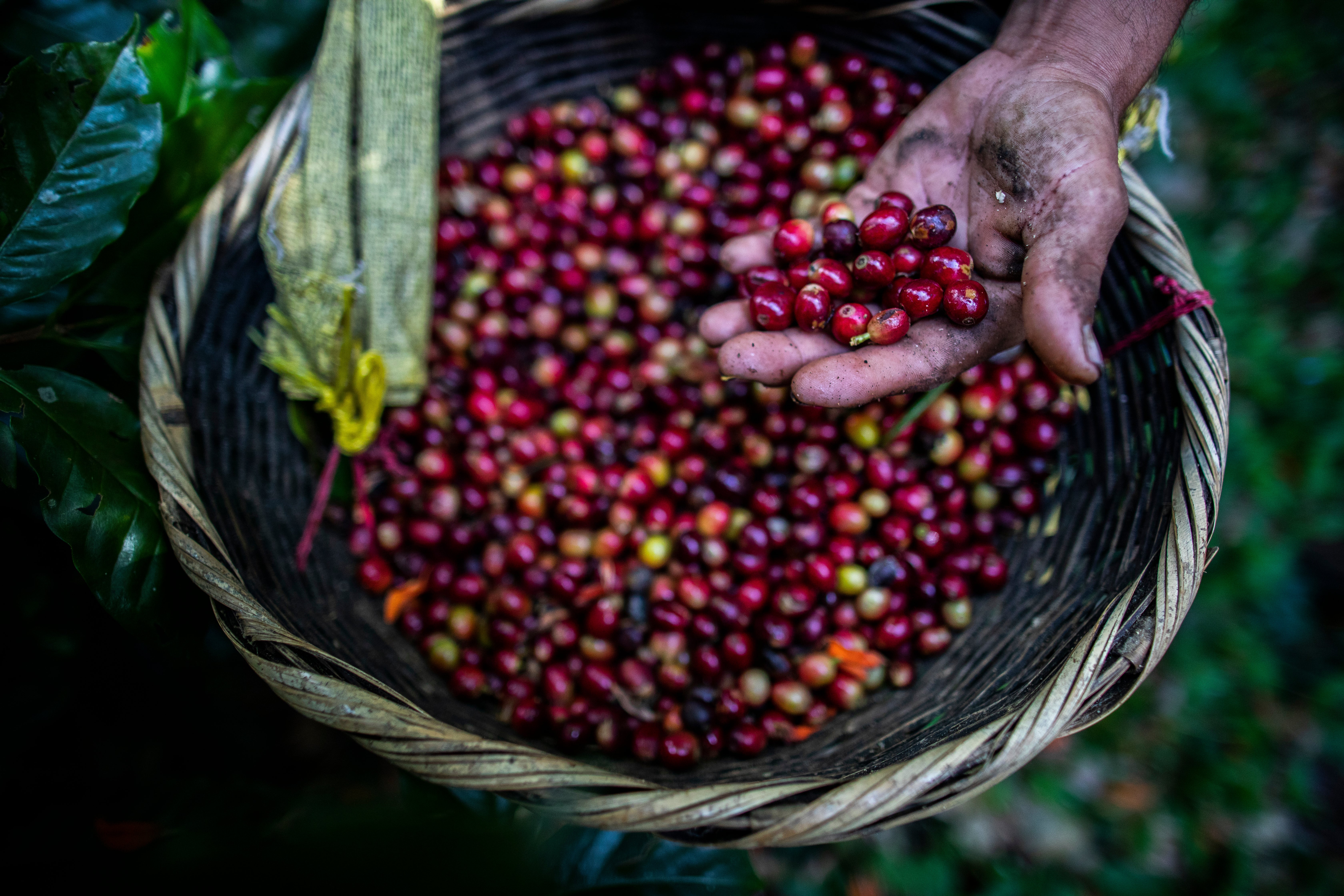Climate change could allow Florida farmers to grow coffee beans
Targetted plant breeding along with reduced winter frosts may help grow crop in changing climate

Your support helps us to tell the story
From reproductive rights to climate change to Big Tech, The Independent is on the ground when the story is developing. Whether it's investigating the financials of Elon Musk's pro-Trump PAC or producing our latest documentary, 'The A Word', which shines a light on the American women fighting for reproductive rights, we know how important it is to parse out the facts from the messaging.
At such a critical moment in US history, we need reporters on the ground. Your donation allows us to keep sending journalists to speak to both sides of the story.
The Independent is trusted by Americans across the entire political spectrum. And unlike many other quality news outlets, we choose not to lock Americans out of our reporting and analysis with paywalls. We believe quality journalism should be available to everyone, paid for by those who can afford it.
Your support makes all the difference.Advances in targeted plant breeding coupled with global warming may allow farmers in the Sunshine State of Florida to grow coffee, according to a new study that sheds light on the importance of crop selection for agriculture under a changing climate.
While coffee yields are impacted by changing rainfall patterns across the globe, the research, published in the journal AoB Plants, found that these effects can be mitigated to some extend by planting more resilient crop varieties, or cultivars, produced via selective breeding.
According to the researchers, including Emily Pappo from the University of Florida in the US, while winters in Florida bring on the additional burden of frosts that could damage the beverage crop, a warming climate may provide an “almost perfect” climate to grow coffee.
In the study, the scientists reduced the precipitation received by five coffee cultivars and measured their yield over two harvests in Costa Rica.
They found that the first generation F1 hybrid cultivars, which are the initial cross between two genetically distinct plants, outperformed the others under both reduced and ambient conditions.
Based on the research, the scientists said more resilient crop varieties produced via careful selective breeding can help maintain coffee production in the face of a changing climate.
“As we start to experience climate change starting to create more warmer days and maybe less frost events, it might become more possible for the coffee plants to thrive here in the Florida climate,” Ms Pappo explained.
”That opens up a lot of really great opportunities for coffee production in this part of the United States,” she added.
Understanding how the roots of the plant cultivars, and the whole crops themselves behave under a changing climate is key to predicting how coffee production would turn out in Florida, according to the scientists.
With help from engineers at UF, the researchers have slid down small cameras in clear plastic tubes into the soil next to the coffee trees, and continue to monitor their root growth to help understand how the plant responds to droughts and frost.
“Using all that information, we can learn more about the materials and the chemical compositions of the soil and the roots that we are imaging. We can learn more about their interactions and their changes over time,” said Alina Zare, engineering professor at UF.
The researchers hope the study could one day lead to the implementation of coffee bean processing and roasting in the state.
“Overall, our results indicate that stress due to higher than average rainfall could impair coffee plant growth and production, and that cultivar selection is likely to be an important tool for maintaining the viability of coffee production, and the resilience of global agroecosystems more generally, under climate change,” the scientists wrote in the study.
Join our commenting forum
Join thought-provoking conversations, follow other Independent readers and see their replies
Comments